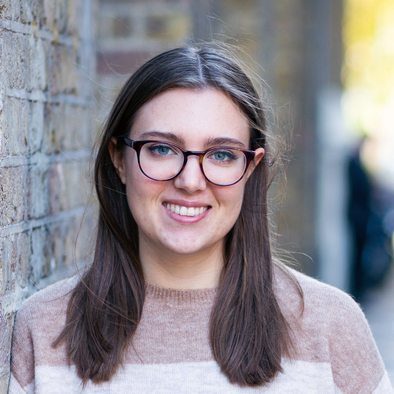Since the Brexit referendum on 23rd June 2016, more and more big players in the finance industry have been jumping the metaphorical ship and moving large parts of their business to continental Europe including, prominently, the city of Frankfurt.
Just at the end of last year, newspapers predicted that London would lose up to $900 million in banking assets to Frankfurt, with 37 finance firms planning on relocating to Germany, including Morgan Stanley and Goldman Sachs.
This will inevitably prove a boost to business schools in the city, including Frankfurt School of Finance and Management, which is located in the center of Frankfurt.
“We’ve already had a huge boost in intake last year,” explains Grigory Vilkov (pictured above right), academic director of the Master of Finance program at the school. “I feel like it’s the combination of several factors—including Brexit.
“Senior people in the finance industry are being moved from London, and lots of companies in Frankfurt say they will be hiring in the next few years, and hiring on a top level.”
A top finance program
Frankfurt School’s Master of Finance program was ranked the best in Germany in last year’s Financial Times Master of Finance rankings, and 18th in the world for average salary three years after graduation, which stands at $89,659.
For Grigory, Frankfurt city’s growth in the last ten years—“I’m starting to see traffic jams that weren’t here 10 years ago!” he quips—is testament to its growing place as a European hub for finance jobs.
“The city is changing very, very rapidly,” he says. “In the past, the financial industry has been so concentrated in London, but now finance knowledge is spread around Europe, which is certainly beneficial for our students.”
Julia Knobbe, program director of the Master of Finance at Frankfurt School of Finance and Management, agrees with Grigory that Frankfurt is growing in importance in the finance industry—and says that this will provide ample career opportunities for finance students in the city.
“Frankfurt does offer unique opportunities for Master of Finance students,” she explains. “We have both the European Central Bank and the Bundesbank—this is something which is very much unique to Frankfurt.”
Julia also cites Germany’s economy as a possible boost for finance students in the country— “we have a strong job market,” she adds. “Even in the non-financial industry, corporations are desperately searching for young talent in corporate jobs.”
Alongside these unique job attractions, Frankfurt School offers unique opportunities for students on their Master's programs to get practical experience in the finance industry by employing a three-day study model for their programs.
Students are only required to attend lectures on three days of the week, including Saturdays, which leaves three days free for students to work part-time.
“It’s obvious there are more job opportunities for students in a finance hub like Frankfurt,” Julia attests. “At Frankfurt School even while studying students can take advantage of this—just being next door for job interviews is so useful.”
Gaining crucial experience
It was Frankfurt School’s unique three-day study model that attracted Nikolas Domingues Duisberg (pictured) to the Master of Finance program at the school.
Nikolas is half-Brazilian, half-German, and spent his youth in São Paolo, Brazil. When deciding where to continue his university education, Germany was a natural choice.
He completed his Bachelor's degree in business administration with a focus on banking in Mannheim, and thanks to Germany’s state-run ‘dual-study’ model, was able to work for German/French bank ODDO BHF in alternate three-month stages while studying for his degree.
After deciding to pursue a career in finance, the Master of Finance program at Frankfurt School of Finance and Management, with their three-day study model, proved a strong attraction for Nikolas. “Since I had already gained so much practical experience, it was a very natural choice,” he says.
Nikolas also considered business schools in London for his Masters, but the prospect of Frankfurt becoming a crucial business hub and the prospect of working and studying at the same time made Frankfurt “a great door opener” in his eyes.
“When I was applying to programs, I was aware that Brexit might really impact how the financial hubs are spread across Europe,” he muses. “You have all the major players in the finance industry here in Frankfurt, and you keep hearing that more players are extending their offices and coming to the city.”
While Grigory is certain that London will remain a popular place for finance students even after Brexit has taken effect, he says Frankfurt’s influence in the finance space will only grow.
“London will not be defeated, it will remain one of the major financial and academic hubs,” he states. “But Brexit has definitely given other centers the chance to catch up.
“Other European cities, like Frankfurt, will provide the same opportunities as London to finance students in the next few years,” he adds.
Student Reviews
Frankfurt School of Finance & Management










